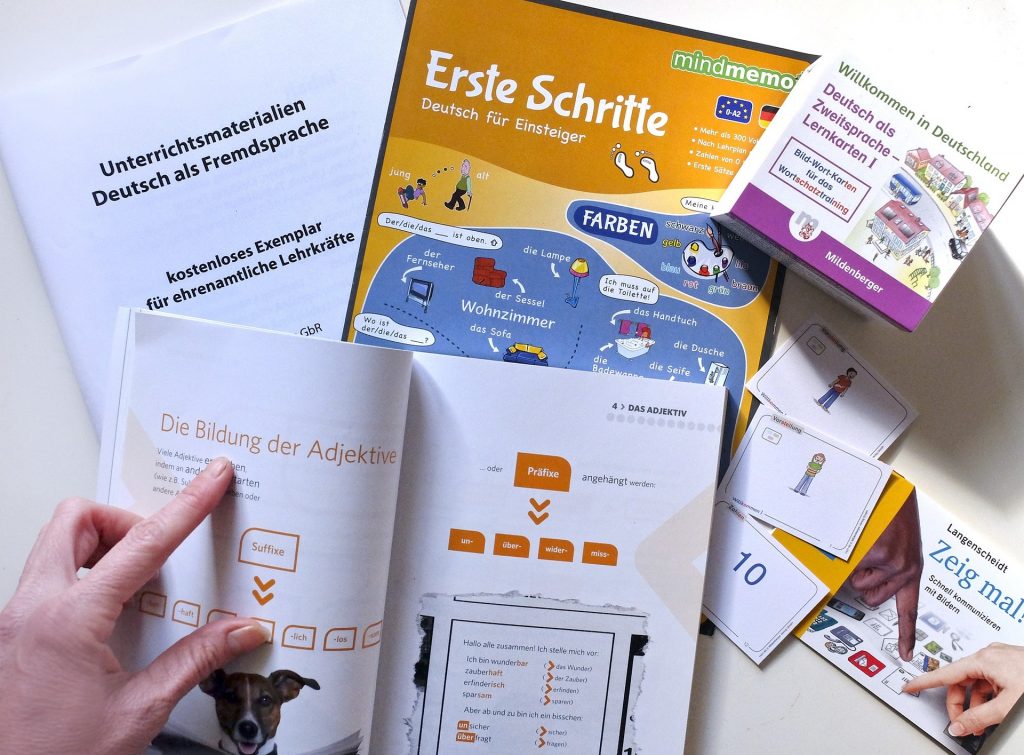One thing I always do before we travel to a new destination is to learn a few words in that country’s language. Am I going to be having witty discussions with locals? Probably not, but I can at least make an effort to speak their language and communicate in a way they’ll understand.
On Back to the Passport, we’ve published a few blogs on handy phrases for travelers in different languages as I think having an understanding of a few basic words, even words like hello, goodbye, where is…, thank you, and do you speak English, are all key phrases any traveler should have in the native tongue of their travel destination.
I think making an attempt to speak another language helps you enjoy your travel experience more, makes it feel more authentic, and helps you have unique interactions with the people you meet along the way. It can also save you if you have an emergency situation and need help, or want to ask a question, or place an order faster.
I know that most people that work in the tourism industry speak English, but I still think it goes a long way to try to communicate in their words. That’s why you travel, right? For new experiences and to taste the life of another place and another culture?
If you’re thinking of learning a new language before a trip, here are some tips I’ve picked up along the way over the last few years that Rick and I have been studying Italian.
How to learn a new language

1. Use a language learning tool
Rosetta Stone, Duolingo, Babbel, there are some great options available to help you in your quest to learn a new language. Some are free, some are expensive, and some walk the line of being a good value.
I personally like Rosetta Stone best as it’s fully immersive, even though I get irritated when it’s making complex sentences and I’m not 100% sure what the translation is in English. But, that’s also the point, to learn the language like a native and not relying on always translating it in your head.
I also like Duolingo as it’s free and easy to use, but I also feel like some of the sentences they put together won’t really help me when Rick and I get to Italy, unless I need to call the hotel reception desk and tell them: “C’è un uomo nella vasca!” Translation: There’s a man in the tub. Now, we’ve got some problems.
Both tools are great in their own right and I use both to supplement the other in my language learning journey. Interested in Rosetta Stone or Duolingo? Check out the pros and cons of both language learning tools here!
I also asked for Italian for Dummies for Christmas and absolutely love it! It helps when I’m stumped in Rosetta Stone on what a certain word is or why it thinks I’m pronouncing it wrong as it breaks down words and has a pronunciation guide. It’s also broken up into manageable chunks so I can focus on learning how to order in a restaurant or when I’m out shopping instead of learning all the words at once!
2. Try immersion
When Rick and I had been studying Italian for about a year, I decided it was time for real-world applications: Reading Harry Potter. I had all seven (well, eight as they included Cursed Child) shipped over from Italy and am slowly making my way through – just finished Harry Potter e il Prigioniero di Azkaban!
Rick also got me a copy of the Back to the Future trilogy in Italian so we can immerse ourselves in the language. I choose things that I know well enough in English that I can make logical leaps as to what’s happening if I miss something in Italian. We’ve also downloaded some news clips or TV shows in Italian to see how they really speak compared to being taught it.
Language learning tools are great, but there’s nothing like learning it in real life and hearing how the words are used in everyday speech.
3. Practice daily
If you don’t use it, you lose it. I can definitely tell when it’s been a few weeks and then I try to pick up a copy of Harry Potter in Italian and am lost looking at the words. Practicing daily, even for 10-15 minutes is extremely helpful and keeps the language at the tip of your tongue.
I do my two Duolingo lessons each day and then read from Harry Potter for about 10 minutes every night. It’s not the biggest time commitment so it’s easy to do and keeps the words fresh in my mind.
4. Find a partner
Another reason I think I’ve been able to keep up my Italian speaking skills is because Rick took it with me and we can practice at home and struggle together. Having someone to speak to has helped and we can practice our vocab out on each other or think of the right words when the other is stumped. I know how much harder it would be if we were going it alone.
I’d recommend taking an immersion class at a local community college or one of those free universities to find people you can practice with in a real-world setting. There are also online programs where you can find a penpal or have Skype calls where they help you with the language you’re learning and you can help them with English or another language you’re fluent in.
5. Speak conversationally
I appreciate that Duolingo is community-built, but I also have to wonder what kind of day they think I’m going to have where I need to know how to say the penguin walks, he has a lion, or my mother’s sister is my aunt. I understand why they do it that way so you’re not doing rote memorization, but those phrases aren’t very helpful unless I’m spending time at the zoo with my aunt in Italy.
Find someone to speak to in a conversational manner or even practice in your own head! I’ll go walks at lunch and think about a recent conversation I had and work on translating it in my head so I learn useful words and phrases.
6. Look up words
Anytime I’m reading Harry Potter and come across a word I don’t know, I look it up and listen to how it’s pronounced. I love building up my vocabulary and by looking up the word’s translation, I can get better at learning how to form complex sentences on my own or use my vocabulary correctly.
7. Learn slang words and idioms
I love, love, love the Italian version of “a lot of things.” It’s sacco di cose, but literally translates to a sack or bag of things. From Harry Potter and Back to the Future, I’ve started getting the hang of humor and idioms in Italian and I think it really helps paint the picture of the language’s structure and nuances within it.
You could also learn some swear words to add some spice to your vocabulary! By understanding cultural phrases and slang words, you’ll have a better understanding of why things are phrased the way they are and how they describe the world.
8. Be okay with making mistakes
When little kiddos are first learning to speak, we gently correct them, but as adults I think we have this fear that if we make a mistake people will laugh or harshly correct us and then mutter “idiot” under their breath. But, that’s not the case!
Don’t be afraid to try, even if you stumble or mix up where you’re putting your subject and adjectives. Most of the time, even if I know I’m making mistakes or pronouncing things wrong, I feel that people appreciate the effort and my trying to communicate in their native tongue. The only way we can get better is if we fail and learn from those mistakes.
9. Do it for the long haul
I’m treating learning Italian like a life-long investment and not a New Year’s resolution that I’ll drop in a few months. I think by thinking of it as a long-term goal and ambition you’ll chase the rest of your life, you’ll be more dedicated to it.
There’s nothing wrong with learning it for an upcoming trip, but be prepared that as soon as you get back home, all those language skills will evaporate.
I love the feeling of being able to communicate in and see the world in two languages and think it’s a really awesome skill to have.
What tips for learning a new language did I miss? Tell me in the comments below or on Twitter!



